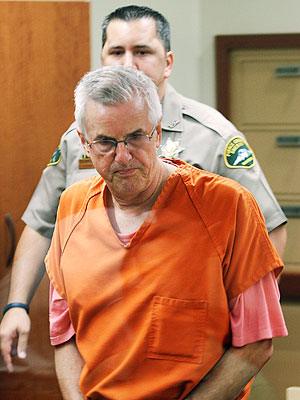Just before Thanksgiving a few years back, Raquel Lopez fielded her umpteenth call of the day to find an irate man on the line.
Someone had littered his lawn with Butterball turkeys.
"This is not funny!" he shouted, demanding the shrink-wrapped birds' immediate removal.
It was another priceless moment for Lopez, who has been answering L.A.'s 311 information line for seven years.
"We're like a human Google," she said, laughing one recent morning as she sat, headset on, in a gray cubicle on the 10th floor of a building across Main Street from City Hall.
And she never can guess what she'll be asked next.
"One call to City Hall," the city's website proclaims, provides residents a "personal gateway to the services Los Angeles has to offer."
But what does that mean, really?
Some L.A. residents have singular ideas:
One caller told Lopez she wanted a wall where her kids played handball tested for STDs because she'd seen a transient urinate on it.
Another refused to accept that she'd have to hire a private service to get rid of bees in her backyard. "They're not my bees," she kept saying. "They're the city's bees."
Then there was the guy who called, very frightened, because he heard strange beeps in his house. Had someone planted something in his walls? Lopez suggested he check the batteries in his smoke alarms.
A man named Kelly had called for years just to talk — after the 911 operators cut him off. His wife, he complained, was sleeping with Dr. Bloomfield — and everything had gone to pot after the Northridge earthquake.
There is an irony in callers' certainty that the city can and should solve their every problem, given that the 311 service has woes of its own.
Budget cuts have shriveled the call center.
When it was launched with much fanfare in 2002, 311 operated all day, every day. Then the hours were chopped — first to 7 a.m. to 10 p.m., then 8 a.m. to 4:45 p.m. Staffing fell from 70 to 35.
Not that the phones stopped ringing. On weekdays, the center averages 2,000 to 3,000 calls; 700 to 900 come in on a typical Saturday or Sunday. Busy agents end up apologizing to callers who complain about having to wait on hold.
Big screens around the room display the number of calls that have been answered so far that day and how many agents — speaking English and Spanish — currently are on the phone. (If someone calls in another language, say Persian or Thai, an interpreter from a contract translation service can be patched in quickly.)
On rapid-fire days, the saving grace for the agents is the personalized recorded message that plays for a few seconds when they first pick up:
"Thank you for calling 311. This is Raquel. How may I assist you?"
Callers don't notice the voice isn't live, and "it lets you take a breather in between," Lopez said.
Many of the 311 calls, of course, are sensible, expected and easily resolved. People ask how to dispose of bulky items. They report dead animals, fallen tree limbs, graffiti or illegal dumping. Someone wants to set up a building inspection. A pothole has appeared. A streetlight is out.
Sophisticated programs let agents quickly find information. They can zoom in, for instance, on maps that show the location of each streetlight, then confirm that they've located the right one by checking to see that a photo matches the caller's description.
Some agents work radios, sending reports directly to crews out on the streets. When it makes sense to, that is.
Mario Aldaz, 34, who has worked at 311 since it opened, said an agent once took a call about an abandoned couch in an alley. The caller didn't ask for the couch to be removed. She wanted the city to remove graffiti on the couch.
As for those Butterballs, Lopez did in the end offer help. She contacted the Bureau of Sanitation — which, among other things, is responsible for collecting dead animals and spoiled meat.
nita.lelyveld@latimes.com
Follow City Beat @latimescitybeat on Twitter or at Los Angeles Times City Beat on Facebook.













